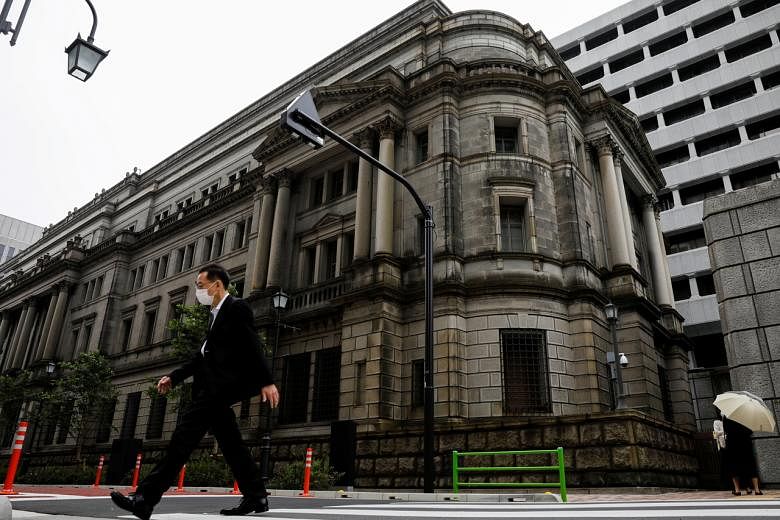TOKYO - Japan's central bank joined the fight against climate change on Friday (July 16) by offering zero-interest funds to banks making loans in sustainable projects or investing in products such as green bonds.
The new scheme, which is set to be launched later this year and will be in effect at least until March 2031, acknowledges that climate change threatens economic growth and financial stability.
Funds will be offered on a one-year basis, though unlimited rollovers will be allowed until the scheme expires.
The plan brings the Bank of Japan (BOJ) in line with the European Central Bank and the Bank of England in their commitment to use monetary policy to address the challenge.
Yet the idea of central banks - market-neutral institutions that are not meant to favour any industry or sector - addressing climate change continues to be unconventional worldwide.
The United States Federal Reserve has reportedly baulked at the idea, saying this should be the ambit of elected officials.
BOJ Governor Haruhiko Kuroda addressed the divergence in view when he said at a press conference on Friday: "Aside from what governments and parliaments do, we debated what central banks can do on this front. The biggest issue was how much we should do as a central bank, and what we can do."
He added: "The biggest mandate of central banks rests with price and financial stability. But at the same time, we know that climate change has a huge long-term impact on the economy and financial system."
The BOJ move is a significant step for Japan, which has long been perceived as a laggard in this area due to addiction to coal and plastic. It brings the central bank in line with a clean energy push by Prime Minister Yoshihide Suga's government, which has pledged to slash emissions by at least 46 per cent from 2013 levels by 2030 en route to carbon neutrality by 2050.
It also comes a month after the Tokyo Stock Exchange and Financial Services Agency updated Japan's corporate governance code. The revised document urges companies to recognise climate change and other global environmental issues as an important management issue that "can lead to earning opportunities as well as risk mitigation (while) increasing corporate value over the mid-to long-term".
Mr Kuroda said that the BOJ has not yet set a value for the funding scheme, but expects the size to be significant given that many financial institutions are "already undertaking various climate-related loans and investment".
The climate plan raised eyebrows as well as expectations when it was first mooted during monetary policy talks last month. More than half of economists surveyed by Bloomberg News had expected the BOJ to offer to pay an interest of up to 0.2 per cent on amounts matching the loans or investments for environmentally-friendly projects.
Mr Kuroda said that as an incentive, the BOJ will ease the negative interest rates charged to financial institutions on funds held by the central bank.
The BOJ also did not define what exactly should be classified as "green", an issue referred to as taxonomy, in effect leaving it up to the banks which will be subject to high standards of disclosure.
"I don't think it's appropriate at this stage for the BOJ to extend loans by judging what's green and what's not green. Instead, we want to indirectly encourage activities to combat climate change via private financial institutions," said Mr Kuroda.
"I don't think there will be a globally agreed taxonomy on green any time soon. That doesn't mean we can afford to wait around until a consensus is reached, which is why we decided to launch this programme," he added.


